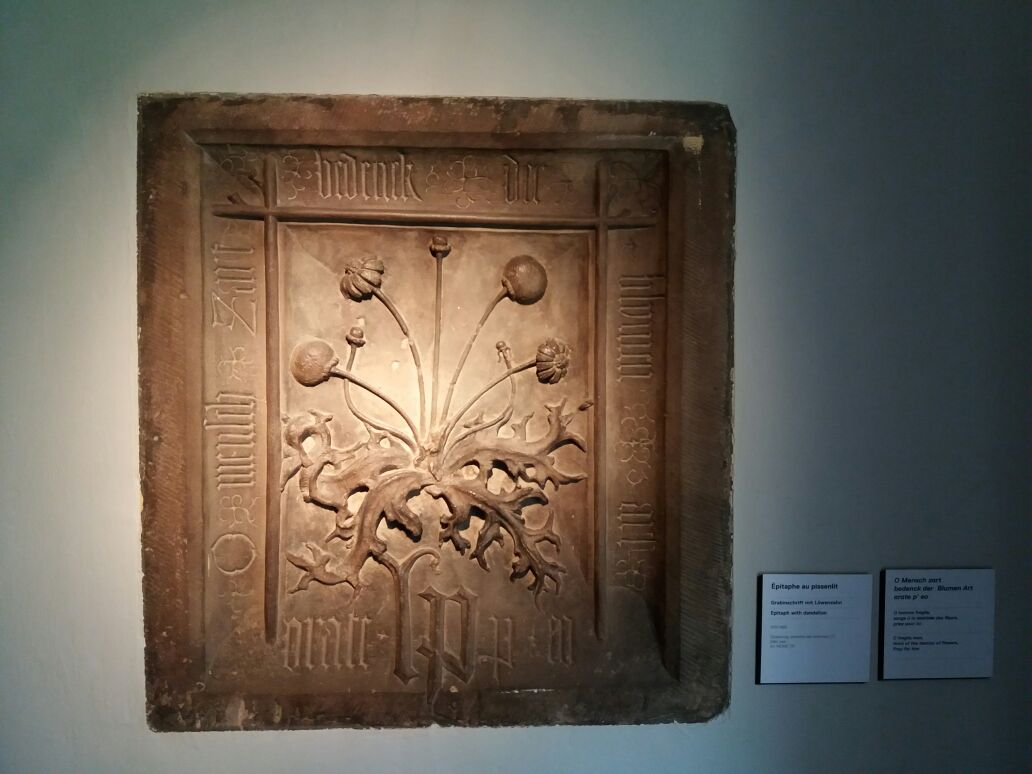Words for Nature: The Art of Ecopoetry
a.r.t.e.s. EUmanities fellow Katharina Maria Kalinowski studies Creative Writing at the University of Kent
by Katharina Maria Kalinowski
The Romantics taught us that Nature is a sacred place of solitude and peace. A place where the soul happily dwells under a clear, moonlit sky; a place where forests, streams, and daffodils become synonyms for human emotions. You might still painfully remember from school how Nature supposedly acted as a metaphor for good old Werther’s inner state of mind. Modernity has taught us that Nature is a thing existing somewhere beyond the human sphere called culture. The 70s have taught us that the capitalist system relies on a continuous exploitation of this “thing”, bringing with it the exploitation of millions of people whose workforce never appears on the price tags of our denim jeans. Greenpeace, Ecopolitics, and Science Fiction are trying to teach us that today, we are facing ecological consequences too great to imagine. How can we dwell under the flashing lights of a toxic sky in the 21st century? Places are transforming as we look at them; no stream remains immune from human influence. Technologisation, globalisation, and economisation have turned the world into a chaotic mesh, where even an innocent chat about the weather is symptomatic of the uncertainties associated with climate change. Clouds are no longer wandering lonely, but are accompanied by airplanes, the moon wears an American flag, the forests are dying, and plastic carpets bury half of the matter of poetry. What is happening to Nature? What can we do, apart from putting our waste in the matching bin, or collecting flyers from political parties that still claim to care? How do we handle the mesh? How can we even use language, a tool eventually also entangled in monopolies of power, to ask these questions?
From Ego to Eco
All these considerations are underlying the contemporary movement dubbed ecopoetry. The term emerged in the 90s and loosely relates to writers and/or artists who seek a critical engagement with an environment that has been irrevocably changed by human beings. It is mostly associated with poets in the American or English-speaking world: Jonathan Skinner, Gary Snyder, Alice Oswald, Rita Wong, John Kinsella, or Juliana Spahr are only some of them. Although the term itself might not be popular in Germany yet, we can find the concept in German literature of the past or present too, represented by writers such as Sarah Kirsch or Andreas Weber. In its widest sense, ecopoetry, comprising the community pieces of Cecilia Vicuña, the poetic garden of Ian Hamilton Finley, and the sound art of bioacoustician David Dunn, is searching to reformulate something not so different from what the Romantics expressed in eloquent metre: the idea that everything is interconnected. However demolished, we are all part of the oikos. Being human doesn’t stop at the border of the skin; and ecopoetry reaches out to the strangely familiar environment to make us
“look at this: look
what we‘ve done. With all
we knew.
With all we knew
that we knew.”
(Tim Seibles First verse)
At the interface of anthropology, philosophy, and science ecopoetry wants to remind us that the transformed “thing” called Nature is not existing beyond our perception. It is surrounding us all the time, it can neither be ignored nor admired from afar, and it is currently undergoing some of the most fatal changes in the history of the universe, which has existed long before the human being turned up just before noon. Ecopoetic art creates a tangible moment to rediscover the natural sphere beyond its commodified function for the human being, and supports a biocentric, or ecocentric perspective. Its superordinate desideratum is a greater environmental justice for all human and non-human creatures to share, although this effort clashes against practical, literary, and knowledge boundaries.
Sounding the world
This is what fascinates me most. How something new emerges, how
“an ethics occurs at the edge
of what we know.”
(Brenda Hillman Practical Water)
Embedded in self/other, foreign/familiar, artificial/organic, male/female, anthropocentrism/biocentrism tensions, ecopoetry opens up lyrical spaces belonging to no one and everyone in which persisting hierarchical concepts crumble and the environment is measured in new voices. Facts and figures can teach us what is, poetry can show us what is possible. The languages of ecopoetry are deconstructive, radical, illusive, dreamy, melodious, innovative, multilingual, synaesthetic, romantic, experimental, angry, sad, critical of its own existence, critical of being classified as I just did. Even if Nature in its Romantic idea no longer exists – most of us still like to think that we will spend our next holiday in an untouched wilderness, close to a pure moon and a healthy sky towards which we’ve never acted more hostile. The concept of ecopoetry encompasses all of it; the remaining beauty and a guilty mourning for the lost, hopes for preservation and thoughts on a future without Nature, ambivalences between systematic destruction and innate biophilia. Perhaps a newly informed rediscovery of the latter might help to stop us from destroying ourselves. This doesn’t mean preaching that recycling will save the planet, or that buying organic clothes whitewashes a disposable society. It means trying to contribute to the awareness that being in this world comes with responsibility and respect towards all living and non-living creatures. This is what ecopoetry ultimately means to me. Trying to figure out what it means to dwell with the environment, with the mesh of today. Distilling the ecopoetic moment: a moment that makes you listen to the entanglements between human and earth, and respond with the wish that plastic carpets will not cover everything.


